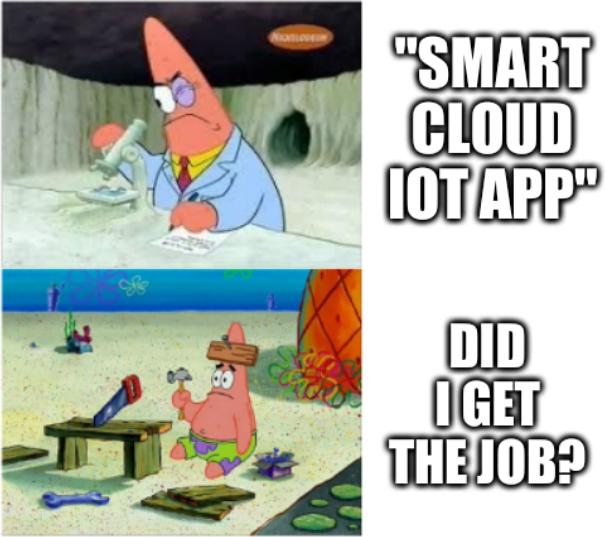
 Summary: 2020 was another terrible year for proper investigation of technical matters; the media has been turned into little but an extension of the Public Relations (PR) industry/sector
Summary: 2020 was another terrible year for proper investigation of technical matters; the media has been turned into little but an extension of the Public Relations (PR) industry/sector
ALMOST nobody online would dare say that 2020 was good for... just about anything. I have stumbled upon many articles that say "good riddance" to this past year, not because 2021 is expected to be any better. Some companies that sell things which are more desirable during lock-downs saw an uptick in demand, but such a demand may be temporary (e.g. exercise bicycles and laptops) and people generally have less money to spend (so even online shopping may experience no boon, except maybe for tax-dodging monopolies such as Amazon).
"A lot of articles are in fact sponsored by the company/ies that they cover."Speaking of media, this is the actual focus of this post. I've been following technical sites for a very long time (2 decades) and over time the PR industry takes up or occupies a growing proportion of the "news cycle", which is why we're seeing lots of spammy 'articles' about Microsoft "loving" Linux (an obvious lie, but a financially-motivated one). A lot of articles are in fact sponsored by the company/ies that they cover. This is not journalism, it's just marketing in 'report' clothing.
In 2020 there was virtually no media coverage about EPO scandals. Almost none at all. It's not like there was a lack of stuff the cover; the will just wasn't there. The coverage which mentioned the EPO came either from law firms or spammy, PR-esque publishers that merely parrot what EPO management says (or tells them to say).
Western NGOs have long moaned about lack of press freedom in places such as Russia and China. We're encouraged to condemn reporting from these nations, dismissing them as government propaganda. But have we not lost sight of similar problems in Europe? Some of the biggest publishers receive funding (bribes) from oligarchs who live in other continents. They tell us that they support journalism, but what they mean to say is that they control journalism. They wish not to be criticised (self-censorship), they want to criticise/berate their competition (either other brands or disruptive new trends), and they want the occasional self-praise/marketing.
"Western NGOs have long moaned about lack of press freedom in places such as Russia and China."A couple of decades ago we habitually found investigative articles about corporate crimes, but nowadays such articles are so few that in the technology sector one might find at most 2 per week. There's no disclosure regarding media owners, there's hardly a pretence of objectivity, and "tweets" are sometimes used as sources, no matter if they are factual or not. The way things are going, more and more people will feel betrayed by the media (rightly so) and then resort to getting their (mis)information from so-called 'Facebook friends' and 'viral' videos in YouTube, which is heavily censored based on some subjective criteria. A lot of people live in an 'alternate reality' where facts are mere 'theories' and conspiracy theories are 'the truth'. So it leads to some kind of collective brain damage, which can spread like a virus, misleading unsuspecting groups and causing them to do bad things, both to themselves and to others.
The role played by COVID-19 is significant, but the pandemic is a bit of a symptom of a rotting economy and vice versa. Some hedge fund were looking to profit from the destruction of what was left of real journalism and it's noteworthy that after lock-downs many bloggers and newsrooms never came back. We named some examples and less than a day ago we took note of Groklaw going offline. It wasn't alone; many other sites like it perished last year, either by becoming completely inactive or going dark indefinitely.
Our approach last year was different; seeing that the Web was going in the wrong direction, we divested a bit (more focus on IPFS instead) and as for me, personally, I mostly disengaged from anything that's social control media. The way we used to do things (e.g. active blogs aplenty, with RSS feeds) was vastly superior for free speech and constructive discussion. A shift away from it has mostly benefited surveillance companies.
"The role played by COVID-19 is significant, but the pandemic is a bit of a symptom of a rotting economy and vice versa."Nowadays, when entering large news sites, it's common to see pop-ups -- if a page comes up at all -- insisting that you allow lots of cookies and JavaScript (in effect foreign programs running on your PC). All this just to read a few paragraphs of text, sometimes with one image that goes with the text. Not only do such sites neglect to advertise RSS (if it is still supported at all), they usually try to outsource things like subscription to companies like Twitter and Facebook. They do, in turn, post a lot of stuff (including videos) to third parties instead of their own sites, which they actually control. This leads to concentration of consolidation of power, in essence creating few monopolies that can tinker with what people can and cannot see. They shape the news or the collective perception of reality. No wonder presidential candidates and states then pay them to bend the news (or "timelines") in their own favour. Instead of news people receive cruft and noise. It threatens not only democracy but reality itself. Fact-checking isn't even a consideration in those sites. It's not part of the business model.
The Brexit referendum in 2016 (yes, nearly half a decade ago; how time flies!) showed the power of social control media being gamed by online campaigns of those looking to disrupt harmony, typically seeding discord for personal/financial gain. 3 Prime Ministers later and the UK throws its own economy into the channels. Why? Because "Brexit means Brexit" or some inane slogan like that...
 When it comes to technical journalists, those barely seem to be employed anymore. News about technology is mostly composed (nowadays) by people who are good at reciting buzzwords and following marketing manuals (or media kits). Some of the old news sites are still online, few of them are still active, and those that are still active (riding their past glory or trade name) are mostly marketing platforms. Sometimes they even openly admit that articles are sponsored by those whom they cover.
When it comes to technical journalists, those barely seem to be employed anymore. News about technology is mostly composed (nowadays) by people who are good at reciting buzzwords and following marketing manuals (or media kits). Some of the old news sites are still online, few of them are still active, and those that are still active (riding their past glory or trade name) are mostly marketing platforms. Sometimes they even openly admit that articles are sponsored by those whom they cover.
Cynicism about and scepticism of the state of the media will grow in 2021. ⬆